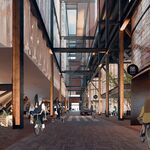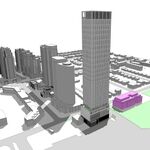crs1026
Superstar
On Finch, that ship has sailed my friend.
Exactly At some point, "What they could have done instead" becomes a fantasy discussion and belongs in another thread.
Personally I am eager to see this project come on line and hoping it makes a positive contribution to the city. Maybe velocity can be managed constructively, and very likely the line will stimulate densification. I hope the streetscape becomes a nicer one. Time will tell, but I'm looking forward not backwards.
To your list I would addI'd push for it on other routes - but the introduction of trolleybuses like that as part of "bus rapid transit" in Toronto is always going to struggle as due to:
- TTC's penchant for allowing crowding on bus routes, due to poor spacing and schedule mismanagement
- lack of attention to ride quality, combined with the above crowding. Bus lanes allow buses to go faster, meaning they sway more and make standee ride quality border on unsafe. The one good thing about slow buses in traffic is, people don't get thrown around much when the bus is crawling. Toronto's bad roads don't help. Any BRT needs to provide a stable road surface and cautious driver behaviour so that ride quality matches LRT. And maybe need fewer standee rides.
- Paul
Last edited:




